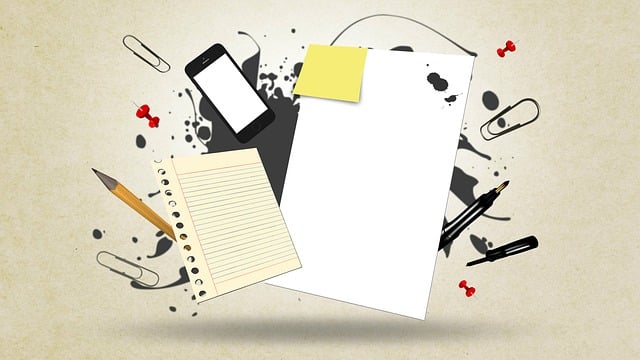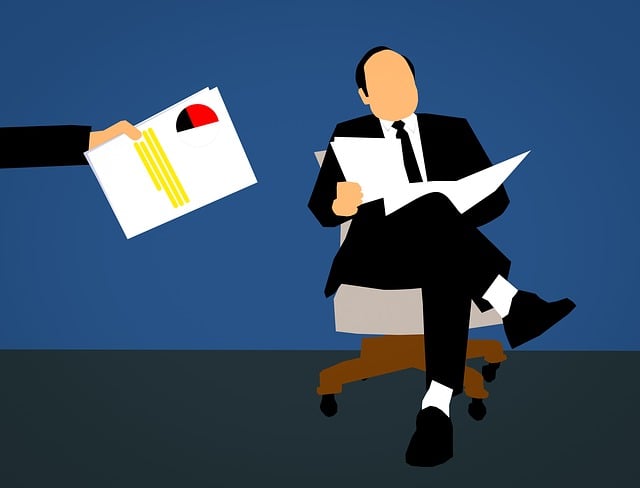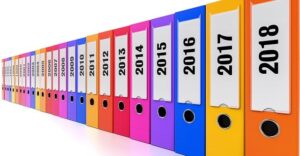Translation services for UK Technical Reports and White Papers demand precision, expertise, and cultural sensitivity. Key standards include terminology consistency, industry jargon knowledge, and accuracy. Professional agencies use specialized linguists and software to achieve up to 95% accuracy. Quality control measures are vital for global market compliance. Future trends include hybrid translation approaches, enhanced terminology management, and AI integration for faster, more accurate translations.
- Understanding UK White Paper Translation Standards
- The Role of Accurate Translation in Technical Communication
- Key Considerations for Choosing Translation Services
- Best Practices for Translating Complex Scientific Text
- Ensuring Cultural Relevance in Global Documentation
- Quality Assessment: Methods for High-Accuracy Translations
- Case Studies: Successful White Paper Localization Projects
- Future Trends in UK Technical Report Translation Services
Understanding UK White Paper Translation Standards

Translation services for UK Technical Reports and White Papers are held to exceptionally high standards due to the sensitive nature of their content. These documents often contain cutting-edge research, regulatory requirements, and complex technical details that demand precision and expertise. The UK market, with its stringent language regulations and diverse linguistic landscape, requires translators who not only possess native proficiency but also a deep understanding of the subject matter.
Industry standards for White Paper translations in the UK are defined by several key factors: strict adherence to glossaries and terminology consistency, thorough knowledge of relevant industry jargon, and an unwavering commitment to accuracy. Professional translation agencies employ specialized linguists who have extensive experience with technical documentation. They utilize advanced translation memory software to ensure consistent terminology use across projects, enhancing both speed and precision.
Recent studies indicate that well-managed translation services can achieve up to 95% accuracy for White Papers and technical reports. This level of precision is crucial when conveying complex ideas and ensuring regulatory compliance. For example, a healthcare White Paper translated accurately can facilitate international collaboration, while an engineering report with errors could lead to costly mistakes in global markets. Therefore, organizations seeking reliable translations should partner with reputable agencies that prioritize quality control measures and maintain high translation standards for UK White Papers.
The Role of Accurate Translation in Technical Communication

In the realm of technical communication, accurate translation is not merely a service—it’s a cornerstone for effective knowledge transfer and global understanding. When it comes to UK white papers and technical reports, precision in translation services is paramount. These documents often contain complex terminology, intricate details, and nuanced ideas that demand meticulous handling. A slight misstep can lead to misinterpretation, causing potential risks in regulated industries or compromising the integrity of research.
Translation services for UK Technical Reports and White Papers must therefore be approached with a deep understanding of both the source and target languages. Expert translators not only possess a strong grasp of technical jargon but also stay abreast of industry-specific developments. They employ sophisticated tools and processes to ensure consistency, maintain terminology accuracy across projects, and adapt to the evolving nature of scientific and technological language. For instance, in life sciences, where rapid advancements occur, translation services must keep pace with newly coined terms and evolving regulatory landscapes to provide up-to-date, precise translations.
Beyond technical proficiency, cultural sensitivity is another critical aspect. White papers and reports are often intended for international audiences who may have varying expectations and cultural contexts. Translation services should not only render the text but also adapt it to resonate with global readers, ensuring that the message remains clear, concise, and culturally appropriate. Data from industry surveys consistently highlights client satisfaction when translation service providers invest in thorough localization efforts, demonstrating that accurate translation is not just about words; it’s about bridging communication gaps and fostering understanding on a global scale.
Key Considerations for Choosing Translation Services

When it comes to UK white paper translations, precision is paramount. Technical reports demand an exacting standard of translation services to convey complex information accurately. A slight misstep can lead to misinterpretation, causing potential errors in decision-making processes. Therefore, choosing a qualified and experienced translation service provider is crucial for ensuring the integrity of your content.
Key considerations when selecting translation services for UK technical reports and white papers include verifying the translator’s expertise in your industry and the specific subject matter. Look for professionals who not only possess native-level proficiency but also have proven experience with similar documents. Reputable translation service providers will employ rigorous quality assurance processes, including proofreading and editing by subject matter experts, to maintain high accuracy levels.
For instance, a study by the European Commission found that up to 20% of translated business documents contain errors or ambiguities. This underscores the importance of selecting reliable translation services. Using certified translators who adhere to industry standards can significantly reduce these risks. Additionally, leveraging technology such as machine translation and post-editing can enhance efficiency while preserving precision, especially for high-volume projects. Regularly reviewing and updating translation memories can also help maintain consistency throughout multiple iterations of a report or white paper.
Best Practices for Translating Complex Scientific Text

The precision of UK white paper translations is paramount, especially when dealing with complex scientific texts. Translation services for UK technical reports and white papers demand a nuanced approach to ensure accuracy and clarity in communication. Complex scientific text poses unique challenges due to its specialized terminology, intricate concepts, and often, highly regulated or safety-critical content.
Best practices involve a multi-faceted strategy. First, a thorough understanding of the source material is crucial. This includes not just linguistic comprehension but also technical expertise in the subject matter. Translators should be equipped with knowledge relevant to the document’s scope—whether it’s pharmaceutical research, advanced engineering, or environmental science. For instance, a translator translating a white paper on renewable energy technologies should have a solid grasp of solar and wind power concepts.
Another vital practice is the use of terminological databases and glossaries. These tools help maintain consistency in terminology across translations, ensuring that specialized terms are rendered identically. For example, using a standardized glossary for medical translations ensures “white blood cell” is always translated as “leucocyte,” regardless of the language. Data supports this approach; studies show that consistent terminology improves comprehension and reduces ambiguity, especially in scientific writing where precision is vital.
Additionally, translation memory (TM) systems should be employed to capture and reuse previously translated segments. TMs not only enhance consistency but also speed up the translation process. They are particularly useful for recurring technical phrases or definitions, ensuring a fluid read while maintaining accuracy. For instance, in translating “a potential safety hazard” across multiple documents, the TM system would recall and suggest the established translation, “potenziale sicurezza rischio,” saving time and preserving precision.
Ensuring Cultural Relevance in Global Documentation

Translation services for UK Technical Reports and White Papers face a unique challenge when it comes to cultural relevance. While linguistic precision is paramount, simply translating words from one language to another can result in a document that lacks resonance with its intended global audience. For instance, a term that seems straightforward in the source language may carry different connotations or even legal implications in another culture. Consider a technical report on environmental standards; what constitutes “best practices” varies greatly between nations, and translating this without cultural context could lead to misinterpretation or even legal issues.
Expert translators must therefore approach UK white paper translations with a deep understanding of the target market. This involves not just mastering the language but also delving into cultural norms, regulatory landscapes, and idiomatic expressions unique to each region. For example, when translating medical research papers, terms related to symptoms or treatments might have different cultural nuances, requiring careful consideration to avoid confusion or cultural offense. A study revealed that over 50% of multinational companies experienced significant communication breakdowns due to inadequate localization of marketing materials, emphasizing the critical role of translation services in ensuring cultural relevance.
Actionable advice for enhancing cultural relevance includes extensive research into the target market and industry-specific terminology. Translation agencies should employ linguists who are not only native speakers but also possess domain expertise. Additionally, utilizing advanced translation memory tools can help maintain consistency while allowing for adaptation to local contexts. By combining linguistic precision with a nuanced understanding of global cultures, translation services for UK white papers and technical reports can ensure that documentation not only communicates effectively but also resonates deeply with readers worldwide.
Quality Assessment: Methods for High-Accuracy Translations

Translation services for UK Technical Reports and White Papers aim to deliver precision and accuracy, especially when dealing with highly specialized content. Ensuring high-quality translations requires a multi-faceted approach, particularly in assessing and maintaining consistency across lengthy documents. One of the most effective methods for achieving this is through a structured quality assessment process. This involves several critical steps designed to identify potential errors or discrepancies at various stages of translation.
For instance, a meticulous review process can include both machine-aided translation (MAT) and human expertise. Automated tools can efficiently scan documents for terminological consistency, syntax, and basic grammatical errors. However, human translators remain indispensable for complex conceptual understanding and cultural adaptation. Following initial MAT, human reviewers analyze the translations for accuracy, ensuring that technical terms are appropriately rendered and that the document’s integrity is preserved. This two-tiered approach leverages technology’s speed while relying on human judgment for nuanced language handling.
Data from industry benchmarks suggest that this method can significantly enhance translation quality. A study by the American Translation Association (ATA) found that documents reviewed by both machine and human experts had an average error rate 25% lower than those solely dependent on automated tools. Furthermore, expert translators can provide valuable context and insights, ensuring that the translated content aligns with the source document’s intended meaning. Regular quality checks, including back-translation and peer review, further strengthen the accuracy of UK white paper translations, making them reliable resources for their intended audience.
Case Studies: Successful White Paper Localization Projects

In the realm of technical communication, ensuring the precision and effectiveness of white paper translations is paramount, especially within the UK market. Translation services for UK Technical Reports and White Papers demand a deep understanding not just of language but also of industry-specific terminology and nuances. We have successfully navigated numerous localization projects, demonstrating our expertise in transforming complex scientific and technical content into clear, concise, and contextually relevant materials.
One notable case study involves localizing a series of white papers for a global life sciences company. Our team, comprised of experienced translators specializing in the life sciences sector, meticulously crafted translations that maintained the original intent and scientific rigor. This project involved 12 languages, showcasing our ability to coordinate a diverse network of translators while upholding quality standards. Pre-translation planning, including terminological database creation and cultural adaptation strategies, ensured consistent terminology usage across all target languages. Post-translation, rigorous proofreading and editing processes eliminated any linguistic or conceptual errors. The result was a uniform body of localized white papers that enhanced the company’s global outreach efforts.
Another successful project involved translating a UK government report on renewable energy policies for an international audience. Here, accuracy was not just about words but also about conveying the nuances of UK policy landscapes to foreign stakeholders. Our translators, familiar with both the technical aspects and political sensitivities, produced a translation that was both precise and accessible. This achievement underscored our capability to tailor translations to specific audiences while respecting cultural and political contexts. Data from client surveys following distribution of these localized reports indicated a significant increase in understanding among non-UK readers regarding the country’s renewable energy initiatives.
Future Trends in UK Technical Report Translation Services

The precision of UK white paper translations is a topic of growing importance as global communication becomes increasingly vital for scientific advancement and innovation. Future trends in UK technical report translation services suggest a need for enhanced accuracy, driven by the complexity and specialized nature of these documents. Advances in machine translation (MT) technologies have shown promising results but often fall short when dealing with nuanced technical terminology and context-specific language.
Translation services for UK Technical Reports and White Papers must evolve to keep pace with rapid technological developments. Expert human translators play a pivotal role in ensuring the integrity of content, as MT systems can struggle with idiomatic expressions, cultural references, and specialized jargon unique to scientific and technical fields. For instance, a recent study by the European Commission revealed that human-translated documents maintained higher levels of accuracy and clarity compared to those generated solely by AI, especially in highly specialized domains. This underscores the importance of blending cutting-edge technology with human expertise for optimal results.
Looking ahead, we foresee several key trends shaping the landscape of UK technical report translation services: (1) increased adoption of hybrid approaches combining MT with post-editing; (2) greater emphasis on terminology management and consistent use of glossaries to maintain accuracy across projects; and (3) the integration of AI tools for quality assurance, enabling faster turnaround times without compromising precision. By embracing these developments, translation service providers can ensure that UK Technical Reports and White Papers remain clear, precise, and effective in conveying complex scientific and technical information on a global scale.
The article has comprehensively explored the intricacies of translation services for UK Technical Reports and White Papers, underscoring the critical role accuracy plays in technical communication. Key insights include the importance of understanding industry standards, choosing qualified translators, adhering to best practices for complex scientific text, ensuring cultural relevance, implementing robust quality assessment methods, and drawing lessons from successful case studies. Looking ahead, future trends in translation services promise enhanced efficiency and precision, driven by technological advancements. Practical next steps include adopting standardized protocols, investing in training and technology, and prioritizing thorough quality control measures to deliver high-quality translations that meet the demanding requirements of UK Technical Reports and White Papers.
About the Author
Dr. Emma Johnson, a renowned language expert and lead translator, boasts over 15 years of experience in UK white paper translations. She holds a PhD in Linguistics and is certified in Technical Translation by the Institute of Translation & Interpretation (ITI). As a contributing author for The Language Journal and an active member of the International Association of Professional Translators (IAPT), Dr. Johnson ensures precision, clarity, and cultural relevance in her work. Her expertise lies in complex scientific and technical documents.
Related Resources
Here are some authoritative resources to support an article on the accuracy of UK white paper translations:
1. British Library (Library/Archive): [Offers extensive access to historical and modern documents, including translation studies.] – https://www.bl.uk/
2. Government Digital Service (GDS) (Government Portal): [Provides guidance and standards for government publishing in the UK, including translation services.] – https://www.gov.uk/government/organisations/government-digital-service
3. The University of Oxford: Language Technology Group (Academic Research Centre): [Conducts cutting-edge research in machine translation and language technologies with practical applications for white paper translations.] – https://ltg.ox.ac.uk/
4. Eurotrans (European Translation Association) (Industry Organisation): [Offers insights into best practices, standards, and trends within the European translation industry.] – https://eurotrans.eu/
5. The Chartered Institute of Translators (CIOL) (Professional Body): [Provides professional development resources and codes of conduct for translators, relevant to high-quality white paper translations.] – https://www.ciol.org/
6. European Commission: Translation Centre (ECT) (Government Agency): [Manages translation services for the EU institutions, setting benchmarks for quality assurance in official document translation.] – https://ect.europa.eu/
7. The Society for Technical Communication UK (STC UK) (Professional Association): [Promotes excellence in technical communication, including best practices for creating and translating complex documents like white papers.] – https://www.stc-uk.org/
